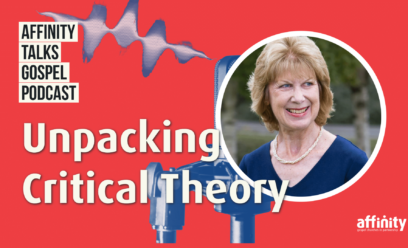The poor are still with us

Do you “uphold the cause of the poor” (Psalm 82:3)?
This week the United Nations published a report by Professor Philip Alston, United Nations Special Rapporteur on extreme poverty and human rights.
Its conclusion is that although “The UK is the world’s fifth largest economy [and] contains many areas of immense wealth, 14 million people, a fifth of the population, live in poverty. Four million of these are more than 50% below the poverty line, and 1.5 million are destitute, unable to afford basic essentials.”
It claims that many are highly dependent on charities and crisis services and, in their desperation, many have resorted to illegal ways of raising extra money including sex work; many others have considered or attempted suicide.
The report further claims that in England homelessness is up 60% since 2010 and rough sleeping is up 134%. There are 1.2 million people on the social housing waiting list, but less than 6,000 homes were built last year. Food bank use is up almost four-fold since 2012, and there are now about 2,000 of them in the UK, up from just 29 at the height of the financial crisis.
According to the report those who suffer the worst effects of poverty are women (as primary caregivers); children in poor families; those in rural areas (especially through lack of public transport and work opportunities); asylum seekers; people with disabilities and pensioners, especially those reliant on state benefit.
The report is highly politicised; alongside a useful digest of statistics, facts and reports of personal experiences, blame is attributed to the government for policies such as Brexit and Universal Credit. This analysis may carry some weight (although nothing is proven in its pages) but greatly diminishes the credibility of the report as objective and independent. This has enabled the government to dismiss its findings and for the substance to be ignored.
But for Christians this report raises important questions. It seems a sociological and economic certainty that there will always be poor people in every country of the world (Deut 15:11; Matt 26:11). But the inevitability of poverty does not absolve us of any responsibility. We should do all we can to provide relief and bring justice to the poor.
Do we care enough for the poor in our own land? My observation is that we are quick to blame them for their plight, or to assume that in a modern society care is the responsibility of governments and our primary caring function is to pay our taxes. No – our first duty is to come to their aid.
What does that look like in practice? One way might be to support local initiatives on behalf of the poor whether through foodbanks, homeless shelters and re-housing schemes or simply providing hospitality and care ourselves. Inasmuch as we can determine what is best, we should campaign for government policies that treat the poor with respect and provide direct support for those genuinely in need.
Caring for the poor is not redemptive. It is not in itself the good news that everyone, including the poor, needs to hear. But it is a vital outworking of the redemption from our spiritual poverty that we have been blessed with and the good news that we ourselves have heard.
Graham Nicholls is Director of Affinity
Here is what Graham said about this issue on TWR this Friday lunchtime:
Stay connected with our monthly update
Sign up to receive the latest news from Affinity and our members, delivered straight to your inbox once a month.



